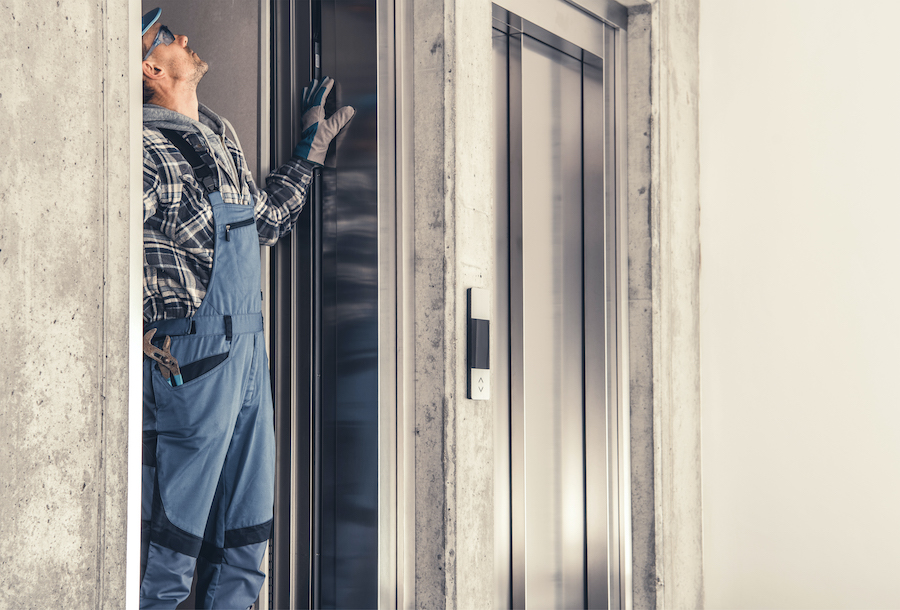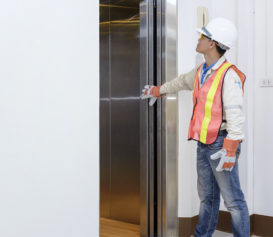Meet The Experts
With an extensive history in NYC’s elevator industry, Sierra Consulting Group has been leading the charge on tracking proposed NYC elevator code changes — and most importantly, how those changes will impact your buildings.
Specifically, Joseph Caracappa (President, Sierra Consulting Group), holds the firm’s NYC DOB Directors License and acts as the Eastern Region, Board of Directors of the International Association of Vertical Transportation Professionals. As the Code Update Bills have been introduced to City Council, Joe has consistently been keeping fellow industry leaders updated and surveilling the proposed updates being made by the city.
While these proposed changes have not yet passed, there is a tentative effective date of January 1, 2022 – not so far away. That said, the team at Sierra Consulting Group will closely monitor these developing changes and continue to update the industry as new information becomes available.
The date to watch is October 2021’s City Council Hearing. Sierra will be monitoring discussions related to the changes, and whether or not the proposed updates become official.
In the meantime, and to ensure your team is prepared should these updates come to pass, the team at Sierra provided a breakdown of the proposed changes. Here’s the scoop, directly from their team:
The following are the Proposed Changes to the NYC Building Code and Elevator and Escalator Safety Code, Article 304 with a Tentative Effective Date of January 1, 2022.
Periodic Inspections
This is a new requirement that will replace PVT Inspections/Violations which were subcontracted to “PVT Agencies.”
NYC will now require these “periodic inspections” to be completed by approved elevator agencies and will become the responsibility of the building owner (Editor’s Note: That’s a huge shift from current processes). Periodic inspections shall be performed between January 1st and December 31st of each year at a minimum of three months from the date of any Category 1 testing or previous periodic inspection. Filing of Periodic Inspections in DOB NOW must be completed within fourteen (14) days of the date of Inspection.
Correcting Defects
All defects as noted in such periodic inspection report must be corrected within 90 days after the date of inspection. The department may grant an extension of 45 days upon submission of an application by the owner demonstrating a practical difficulty in complying within the 90-day timeframe. In no circumstance will more than two such extensions be granted for a specific defect. An Affirmation of Correction shall be filed within 14 days after the date of correction.
Special Cases
- Initial periodic inspections on new installations must be performed in the calendar year following the final acceptance test.
- For private residence elevators, the periodic inspection and Category 1 and/or 5 testing may be performed on the same date.
Category 1 & 5 Inspections
The completed reports, with all applicable signatures, shall be filed within 21 days after the date of the test. Reports are not required to be submitted to the department for private residence wheelchair lifts and private residence dumbwaiter devices. However, the owner shall maintain an inspection and test log to be available to the department upon request.
Correcting Defects
All defects as found in such category test report shall be corrected within 90 days after the date of test. An Affirmation of Correction shall be filed within 14 days of the date of correction.
Connect With The Experts
Sierra Consulting Group is on standby to help guide you and your staff through any and all of the upcoming changes surrounding elevator and escalator safety protocols. You can touch base with them in a number of ways:
- Via their website, linked here
- On LinkedIn, where they share best practices and the latest updates
And at this year’s RealFocus conference! Sierra Consulting Group is a Gold Partner at this year’s event, and will be onsite to answer all your elevator-centric questions, including (but not limited to):
- Code compliance
- New operating procedures
- The proposed DOB updates
- Elevator modernization timelines
- Budgeting for the 2027 brake code
…and much, much more! Join us this year, and don’t miss the chance to chat with the best experts in person.




